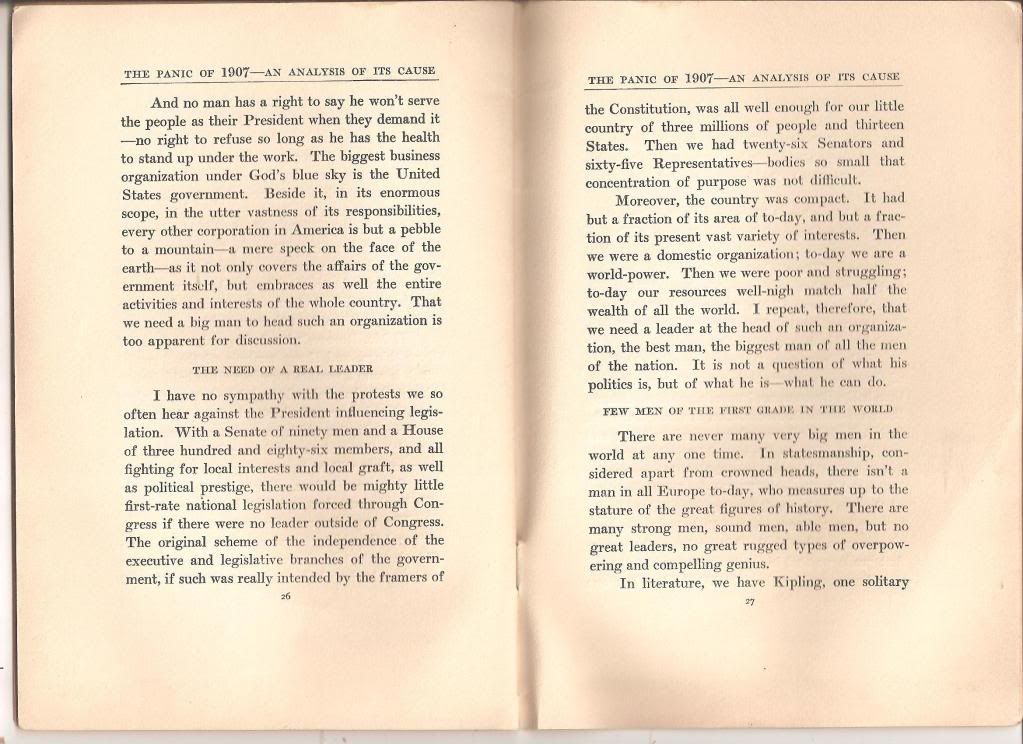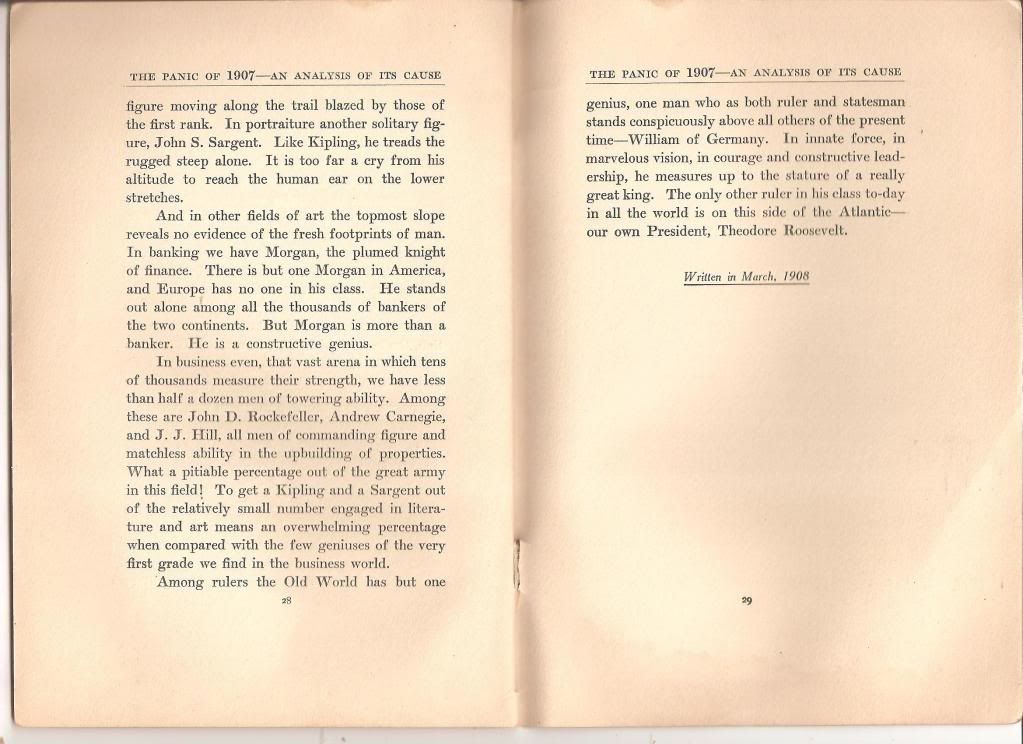The Munsey publishing house wasted no time in raining lavish praise upon the new candidate. Many such articles were written by Munsey himself , as was the case with an August 1912 editorial in Munsey's, explaining the history of the new Progressive Party, claiming that a rift among Republicans had not developed earlier due only to Roosevelt's ability to bring differing opinions together under consensus, something, it was charged, Taft was incapable of.
Munsey was casting Roosevelt in a dual light, both as a Progressive, as well as a "reformer" Republican who was among the few that still held to the party's core ideals. "Roosevelt was then, as he is now, a progressive," Munsey wrote. "He spoke the language that the progressives understood and that the people of the country of progressive ideas understood." This dedication to progressivism was more than simply a rehashing of the party name, but rather held a meaning in and of itself.
Amidst all of the radical changes occurring at the turn of the century, a sentiment that had been shared by many for well over one hundred years was that of human progress. Best articulated by philosopher Georg Wilhelm Friedrich Hegel, the notion that the story of mankind is geared towards a teleological end, that end being the constant betterment of mankind throughout history, was an extremely popular view at the time. This Hegelian dialectical understanding of history inspired many individuals, from philosophers to politicians, who believed that recent advances in technology and the arts were evidence of such progress. Unfortunately, European and American notions of imperialism, of "bettering" the other races of the world through colonialism and "Christianization," was also fueled by such a belief; nonetheless, the majority of those who envisioned this predetermined progress believed that radical social reform, such as what was being promised by Roosevelt, was the truest indication of man's future. This was still several years before The First World War, which, to a large extant, shattered many notions as to how far mankind had actually progressed. While it is doubtful Munsey shared such an existential understanding of Roosevelt's campaign (Munsey often prided himself on simply getting things done, as opposed to reading about how others had gotten things done), it was nevertheless imperative that Munsey appeal to both Progressives, as well as Republicans who were not satisfied with Taft.
"The new Progressive Party will start with a clean slate, without prejudice for or against it in any section of the country, either in North or South, in East or West. It will start free from political bosses and political derelicts. It will be a party of the people and for the people. It will be a young man's party. It will stand for sane, sound progress everywhere and in everything, without slavish prejudice in favor of what is or what has been. It will be a party of to-day and of the future, not a party that lives on the traditions of its past."
With such statements, Munsey, carrying his salesmanship from periodicals to politics, extols the importance of the party, where it stands on several important issues of the day, and why it is superior to any and all parties that have come previously, as well as to any that may come after. Explaining the platform and purpose of the party was only half of Munsey's mission; he had also to "sell" the idea of Roosevelt, the man, to the undecided.




Complete with images of the candidate, from stirring and heroic speech-givings, to old-fashioned family portraits, Munsey's articles were intended to convey Roosevelt the man, Roosevelt your friend, in addition to Roosevelt the reformer. "If the call does come, he [Roosevelt] will buckle on his armor and go to it with all his old-time impetuosity and energy," Munsey wrote in a column that appeared in all newspapers under his ownership. To provide further coverage to his candidate of choice, Munsey purchased The New York Press in 1912, at a cost of $1,000,000. Utilization of newspapers and periodicals, however, was not the only way Munsey displayed his support for the "Bull Moose."
With this post, I have included scans of the cover and several pages of a pamphlet Munsey published in 1912, in which can be found the manner of praise the author heaped upon Roosevelt during the campaign. The cover and a few pages of Munsey's The Panic of 1907 - An Analysis of Its Cause (printed in 1908) are also provided; this work countered many of the accusations levels against then-President Roosevelt, concerning his handling of 1907's financial crisis, and displays Munsey's interest in politics a number of years before the 1912 election. Such pamphlets, as well as the many others he wrote (of which I will also provide scans, in my next, concluding post concerning Munsey's politics, and Munsey himself) speak to his interest in a variety of matters, both economical and political, an interest that, unfortunately, many writers of Munsey's life and career fail to notice.



Sources:
Britt, George. Forty Years – Forty Millions : The Career of Frank A. Munsey. Port Washington: Kennikat Press, 1972.
Munsey, Frank Andrew. "The New Progressive Party - What It Is and Why It Is," Munsey's Magazine. New York: Frank A. Munsey, Aug. 1912, 675, 677.
Stoddard, Henry L. As I Knew Them - Presidents and Politics From Grant To Coolidge. New York: Harper and Brothers Publishers, 1927.

Munsey was also the largest stockholder in U.S. Steel, a Morgan corporation. There are certainly many Morgan figures stacking the ranks of the Progressive party, opposing Taft (a Rockefeller man from Ohio).
ReplyDelete